Studio Naturalistico Hyla
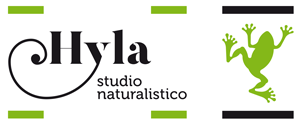
Studio Naturalistico Hyla, founded in 2004 by one of the current member, has gained professional figures over the years until its development into a partnership and the achievement of the present arrangement, made up of three members, several associates and consultants.
The University formation, followed by scholarships, temporary research fellowships and Ph.D., allowed the team to increase experience in the naturalistic field, thus enabling the Society to work in several professional spheres.
Since its foundation, Studio Naturalistico Hyla has been working in the field of education, communication and environmental dissemination. Over the years it has developed numerous projects with schools, including within the LIFE community project (Save the Flyers, WOLFALPS, SUN LIFE) and has activated collaborations with professionals in the sector throughout the national territory.
Since 2013 Studio Naturalistico Hyla has joined in with IN.F.E.A network (Environmental Education Information) of the Umbria region (Italy) as the Environmental Education Center of the C.R.I.D.E.A. (Regional Center for Information, Documentation and Environmental Education). Studio Naturalistico Hyla is part of the Hyla Group brand together with Agri Hyla Agricultural Company, which makes the healthy interaction between agricultural activities and natural ecosystems its mission, and the Hyla Nature Experience Association, with which experiential initiatives are organized in contact with nature.
University of Lodz
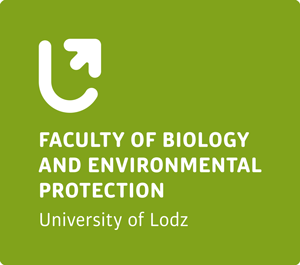
L’Università di Lodz, fondata nel 1945, è uno dei principali Istituti di Istruzione Superiore in Polonia. Per decenni è stata anche una delle più grandi e popolari Università polacche ed è ripetutamente classificata tra i migliori Istituti di Istruzione Superiore del paese. Le 12 facoltà dell’Università offrono 95 programmi e 158 specializzazioni in polacco e 21 programmi in inglese. Inoltre, l’Università offre diversi programmi di dottorato e più di 50 programmi di studio post-laurea. Attualmente, circa 28.000 studenti di tutti i livelli frequentano l’Università di Lodz, di cui 3.000 provenienti dall’estero.
In questa atmosfera veramente internazionale tutti possono sperimentare la diversità culturale sia della città che dell’istituzione. L’interesse per lo studio presso l’Università di Lodz è determinato non solo dall’alta qualità dell’istruzione, ma anche dai moderni programmi di studio adattati alle mutevoli esigenze del mercato del lavoro. L’Università tratta la cooperazione internazionale come un modo per promuoverne lo sviluppo e continuare la tradizione della città. La nostra istituzione ospita regolarmente relatori ospiti, politici rinomati, uomini d’affari e rappresentanti culturali dalla Polonia e dall’estero e partecipa attivamente a molti programmi educativi e di ricerca internazionali.
Nell’ambito di accordi di cooperazione diretta, la scuola collabora con 270 istituti partner provenienti da tutto il mondo. Nell’ambito del programma Erasmus+ l’Ateneo ha firmato finora 700 accordi con 400 istituti partner. Come risultato di una cooperazione con un certo numero di Università straniere come Université Jean Moulin Lyon 3, Université Franҫois – Rabelais (Tours), Westfälische Wilhelms – Universität Münster, Università del Maryland, Università di Ratisbona e Centria e Università di scienze applicate (Kokkola, Finlandia) gli studenti dell’Università di Lodz possono laurearsi con doppio diploma. Ogni anno, circa 400 studenti vanno in paesi stranieri per scambi di studenti (la maggior parte dei quali con una borsa di studio). D’altra parte, l’UL riceve oltre 1000 foreign exchange students per year.
University of Piteşti
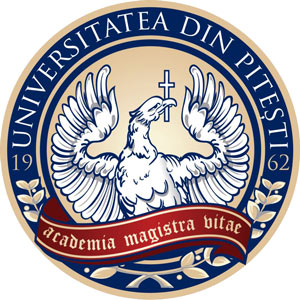
The University of Piteşti (UPIT) is a public higher education institution, member of the national higher education system in Romania since 1962. Its mission is to become a modern and dynamic higher education and research institution, based on performance, competitiveness and quality, active and integrated in the local, regional and national community as well as in the European Higher Education Area. It is structured in 6 faculties managing 147 study programs, out of which 64 undergraduate study programs (Bachelor’s degree programs) and 83 postgraduate study programs (Master’s degree programs), 8 doctoral schools and 10 doctoral domains enrolling around 9,500 students.
We are a member of several notable international professional and academic institutions like: The EUA, L’Agence universitaire de la Francophonie (AUF), The Danube Rectors' Conference (DRC), The EfVET. We strongly collaborate with more than 200 universities in the EU Member-States and non-EU countries having an increasing number of partners in all continents for all undergraduate or postgraduate studies, Erasmus+ mobilities, research-development-innovation projects or conferences and scientific journals.
The Faculty of Education Sciences, Social Sciences and Psychology (FSESSP) organizes activities regarding teachers’ continuous training, professional promotion through the system of granting didactic degrees, as well as specific activities of scientific research and technological development for teachers in pre-university educational system, including preschool and primary level. The Department of Education Sciences runs Bachelor Degree programs: Pedagogy of primary and preschool education and Master Degree programs: Educational management, Educational Counselling, Early Childhood Education.
FSESSP participates at competitions for financing researches for projects and contracts organized by The National University Research Council (CNCS). FSESSP also has a Centre of Pedagogical Analysis and Development for the implementation of higher education and quality pedagogic management technologies. FSESSP has a Cabinet of Didactic Counselling for the teaching career in order to advise students as regards their career orientation as future teachers and to advise teachers during the programs of continuous training.
Istituto Comprensivo Dalmazio Birago
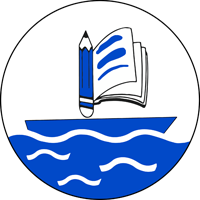
Istituto Comprensivo "D. Birago'' offers three levels of schools: kindergarten, primary school and lower secondary school, located in the municipalities of Passignano and Tuoro sul Trasimeno (Umbria, Italy). It has pupils from 3 to 13 years old, for a total of almost 800 students.
The most important objectives of its training offer are:
- the enhancement of student learning,
- their academic success,
- the link with the productive realities of the territory.
The Institute attaches great importance to foreign language learning: in particular English, which is taught from the second year of kindergarten until the third year of secondary school; a second foreign language (French) is taught in the three years of secondary school. Special courses dedicated to learning Italian as a second language are available for foreign students. In addition, there are many activities for the inclusion of students with special needs.
Particular importance is given to citizenship competences and for this reason the Municipal Council of Boys and Girls has been established, in collaboration with the Municipal Administrations of the two municipalities where the schools of the Institute are located.
In recent years, moreover, the Institute has worked improving digital tools thanks to the National Digital School Plan: with 2.0 classes equipped with tablets and obtaining funding to provide schools with innovative digital environments.
All schools of the Institute have a "green" vocation and participate in projects whose main purpose is to make the new generations aware of respect for the environment in all its forms. For years, younger students have been involved in maintaining small educational gardens because schools have outdoor spaces, even if they are small, that can be used to experiment and that pupils particularly like.
Thanks to this approach, the Institute has chosen the construction of a correct community-territory relationship and the enhancement of local resources and traditions, in the conviction that the interdependence of global, environmental, and social phenomena requires conscious and correct behavior, especially starting from the environment in which you live.
School Alexandru Davila
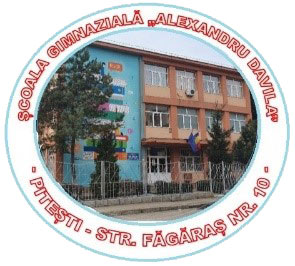
School ”Alexandru Davila ” from Pitesti, Romania is one of the 20 public schools from the town Pitesti (the capital town of our county, Arges), being one of the schools with a considerable number of students. We have 1130 pupils from 6 to 14 years of age (primary school 600 children and 530 secondary school -the students coming from different social categories).
The school provides a huge green space with a big variety of different plant types. It is often used as a place for learning during the science classes.
Our aim is to teach our pupils to respect others’s culture, to be creative, independent, free in thoughts, ideas, beliefs and also able to work as a part of a team. We want to develop our children’s communicational skills of different kinds, to stimulate our children’s ingeniuty, and also to stimulate learn English language.
All of the members of the team selected to contribute to the project have teaching activities in Primary Education. They are involved in continuous training programs for preschool and primary teachers' education, organize conferences and seminaries for primary education field, and are involved in the national preschool and primary education reform movements.
Our school involved students in international programmes in the last few years such as:
- “Healthy mind in a healthy body” (2011-2013). progetto finanziato dal governo norvegese attraverso il programma norvegese di cooperazione per la crescita economica e lo sviluppo sostenibile in Romania e cofinanziato dal Ministero della Salute della Romania.
- GHOSN- Rete scolastica globale per la salute e l’educazione fisica (2013-2015). L’obiettivo è quello di promuovere soluzioni interattive basate sulla tecnologia per stimolare un comportamento sano e uno stile di vita attivo tra i bambini creando un partenariato tra scuole, comunità e università.
- HopSports On-Line Streaming (OLS) Brain Breaks (BB) Studio di ricerca. Si tratta di un progetto di ricerca scientifica.
- Programma scolastico e in aula. Questo programma gratuito collega gli insegnanti e le loro classi provenienti da diversi paesi attraverso scambi e progetti di pen-pal, in modo che possano costruire amicizie e promuovere la comprensione culturale e la consapevolezza globale.
- CLIL per bambini-C4C. L’obiettivo del progetto C4C Erasmus è quello di sostenere gli insegnanti della scuola primaria con un programma di formazione completo per l’insegnamento CLIL.